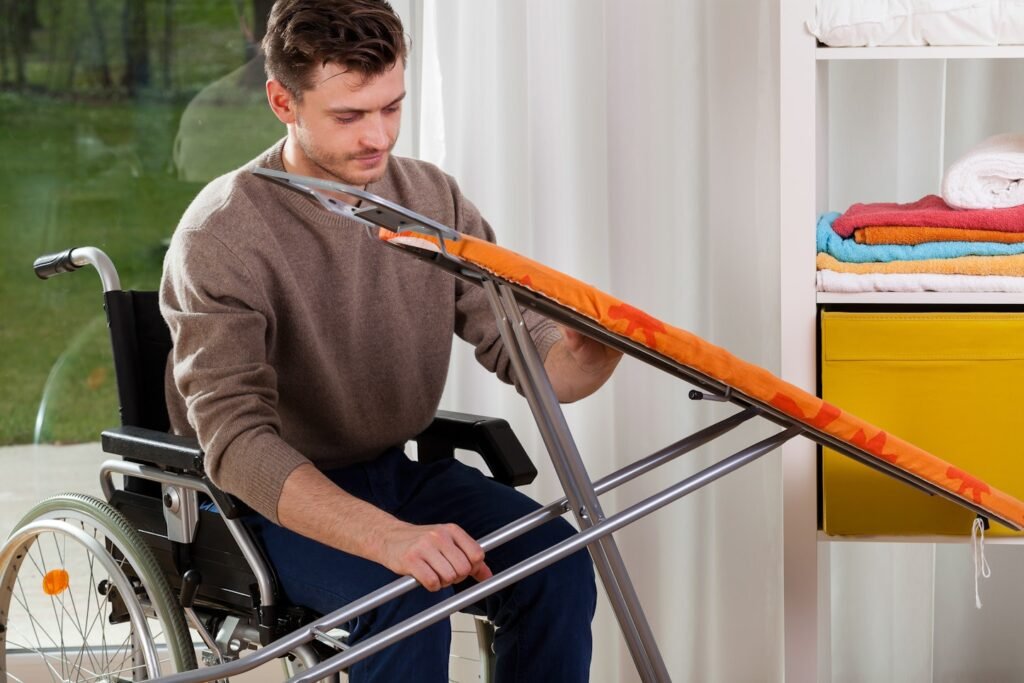Accommodation
This online portal offers information about accessible housing, specialist disability accommodation, supported independent living and accommodation support under the National Disability Insurance Scheme.

Finding the best place for you
There are different types of accommodation and living arrangements that are available to you depending on your situation and needs. You may choose to live with or without support, in your own home or with your family. However, finding accommodation that best suits your individual needs isn’t always easy.
Navigating housing choices is key to a comfortable life. Whether it's 24-hour emergency support, public housing, long-term stays, respite breaks, shared living, short-term solutions, specialist disability accommodation (SDA), supported independent living (SIL) or basic tenancy, we've got insights to help you decide what suits you best. Explore your options and make informed decisions for a home that fits seamlessly with your needs and lifestyle.
Search for accommodation/housing options
You can find accommodation/housing services options, as well as vacancies from providers by searching our NDIS database across Australia. Click here to search for accommodation options in your area.
Specialist disability accommodation

For people with significant support needs, the NDIS offers funding for specialist disability accommodation, commonly referred to as 'SDA'. This specialised form of accommodation is tailored to provide the necessary support and facilities for those with higher care requirements.
SDA funding covers the cost of a person’s home where they receive their day-to-day support. Importantly, it allows people with disability to remain integrated into the community.
SDA gives people with disability a choice about their housing environment, ensuring they receive the right support and housing design for them, including lighting, accessible spaces and amenities.
Find SDA providers/options
You can find SDA providers and options, as well as vacancies from providers, by searching our NDIS database across Australia.
Click here to search for specialist disability accommodation options in your area.
Supported independent living

For those seeking a balance between independence and support, supported independent living, otherwise known as 'SIL' , is a valuable option. SIL provides the assistance needed for people with disability to live independently while ensuring support is readily available.
These types of support could include laundry, cleaning, meal preparation and personal care.
There are three levels of supported accommodation, depending on your needs and the number of people in the supported living setting.
For those with lower needs: supervision of living arrangements and support is not usually provided 24/7.
For those with standard needs: 24/7 support may be provided, including assistance and/or supervision of most daily tasks and overnight sleepovers.
Search for SIL services
For those with higher needs: frequent assistance will be required.
You can find SIL service providers and options by searching our NDIS database across Australia.
Click here to search for supported independent living options in your area.
Funding and finding a home
You must follow several key steps to secure funding through the NDIS for your housing needs. Begin by understanding the application process, eligibility criteria and the types of support covered under NDIS funding. The amount of funding you receive depends on your individual needs and the level of support required.

SIL funding
For those participants who would like to live independently but may also require some extra support to meet their daily living needs, supported independent living could be the path to take.
SIL is referred to as ‘assistance with daily living’ or ‘ADL’ in the NDIS Core Supports budget. It’s funded individually and the supports can be shared amongst everyone in a house.
There are three levels of supported accommodation, depending on your needs and the number of people in the supported living setting.
Finding a SIL home
Once you have been approved for SIL, the next step is finding the right place to move into. There are a few steps that need to happen and things to consider, including the support-work-to-housemate ratio needs to match what is outlined in your assessment, with everyone in the household to have similar ratios as well as looking for a house that matches the requirements as set out in the occupational therapist’s assessment.
Search for a SIL home
There are several different housing types: But which is the right one for you?
Click here to search for supported independent living options in your area.
Individualised living options funding
To receive ILO funding, speak with your local area coordinator or complete the Home and Living Supports Request Form available on the NDIS website, to start the process of finding out if ILO is right for you.
ILO funding is more flexible than SIL, which is usually used to live in a shared house, so ILO funding can meet a wider variety of individual needs.
You can’t be funded for both ILO and SIL at the same time, although they both provide some similar supports, however, you can receive ILO funding while living in specialist disability accommodation.
Individualised living options support is available to those participants who live alone or independently in someone else’s house, but don’t include the house itself — as per specialist disability accommodation, as SDA funding focuses on the housing.
Accessible housing under the NDIS
There are a number of providers in Australia that are working to design, build and/or modify homes for those with disability, making housing easier and more accessible for everyone.
There is a clear shortage in the market for accessible homes and those homes that are rentals, in addition to being accessible, are generally rented to someone who doesn’t need an accessible house. Additionally, homes may not be designed with accessibility in mind for people with disability.
Finding an accessible house in Australia will always be challenging, however, this is made even harder when there are limited housing options available in the market.
Search for accessible housing
You can find accessible housing providers by searching our NDIS database across Australia.
There is a clear shortage in the market for accessible homes and those homes that are rentals, in addition to being accessible, are generally rented to someone who doesn’t need an accessible house. Additionally, homes may not be designed with accessibility in mind for people with disability.
Click here to search for supported independent living options in your area.
Who can help?
There are a number of professionals who can help you work through the different aspects of NDIS funding and available housing, so you can find the most suitable accommodation.

24-Hour Emergency
If you need urgent, emergency accommodation, 24-hour accommodation can provide you with a safe place to stay.

Housing
When it comes to living independently in your own home it's important to find housing that is accessible and meets your needs.

Long Term Accommodation
Long-term accommodation provides ongoing housing security, allowing you to get the most out of your life.

Respite
Respite is a great form of temporary accommodation available when you or your carer need a break.

Shared Living
Shared living is a housing option that allows you to live with people with similar needs, sharing household tasks and supporting one another.

Short Term Accommodation
If you need somewhere to stay for a short period of time, there are some accommodation options able to meet your needs until you find long-term housing.

Specialist Disability Accommodation
If you have complex support needs, specialised accommodation can meet these, helping you live a supported and fulfilling life within your community.

Supported Independent Living
Supported independent living allows you to receive support in your home, alongside other people with disability with similar needs.
Popular Accommodation Articles
Afford Copy
Afford Afford provides disability services across Australia including Supported Independent Living (SIL) Homes, Community Centres, Short Term Accommodation,…
Afford
Afford Afford provides disability services across Australia including Supported Independent Living (SIL) Homes, Community Centres, Short Term Accommodation,…
What is Capital support?
Assistive technology equipment, home or vehicle modifications are funded through the Capital support budget. Key points What is…



